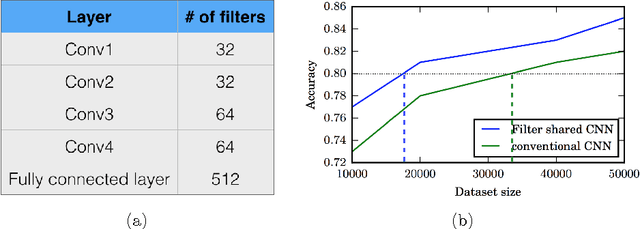Filter sharing: Efficient learning of parameters for volumetric convolutions
Paper and Code
Dec 08, 2016


Typical convolutional neural networks (CNNs) have several millions of parameters and require a large amount of annotated data to train them. In medical applications where training data is hard to come by, these sophisticated machine learning models are difficult to train. In this paper, we propose a method to reduce the inherent complexity of CNNs during training by exploiting the significant redundancy that is noticed in the learnt CNN filters. Our method relies on finding a small set of filters and mixing coefficients to derive every filter in each convolutional layer at the time of training itself, thereby reducing the number of parameters to be trained. We consider the problem of 3D lung nodule segmentation in CT images and demonstrate the effectiveness of our method in achieving good results with only few training examples.
 Add to Chrome
Add to Chrome Add to Firefox
Add to Firefox Add to Edge
Add to Edge